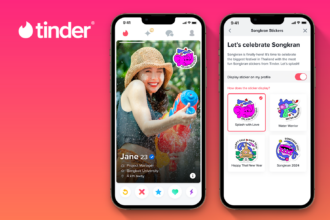Human behavior and marketing have always been two topics of mine that I am very interested in. As I dug deeper into marketing I realized how intertwined they are. The more I speak to marketers or businesses I started seeing a pattern and asking myself if their marketing is ethical. In order to fully understand this question I knew I needed to ask an expert. Luckily I was able to speak with Dr Kinga Mnich who is an international social-psychologist, lecturer, and speaker specialist in emotions, positive psychology, and gender. I asked Dr Kinga Mnich a few questions and was able to dig deeper into this topic and gave insights into my marketing so I hope this will help you.
Dr Kinga, when I first asked this question what was your initial response?
The online marketing world is growing exponentially. Especially last year when the pandemic spread its way through the world many businesses found rescue in moving into the online space. At the same time, we are observing a whole new generation of people following the dream of building a life and making money based on their own terms.
With that, we are seeing a tremendous increase in marketing offerings. Specialist popping up from anywhere. Social Media gurus focused on Instagram, YouTube, TikTok, Clubhouse, and a few other platforms.
You mentioned to me authentically connecting to customers is important before marketing, can you elaborate?
The big question that follows these new trends is how to connect authentically with clients, create value and sell without being salesy. Many online marketers praise the world wide web for its ability to connect companies with a wider audience. And while this is true, some, unfortunately, use scars tactics such as An Ethical Approach to Fear-Based Sales. This approached hits the core of human nature by deepening the belief that your fear is real and that you must take action to overcome it – by either buy a product or service. The problem with fear-based marketing is that it doesn’t allow the client to make an all-compensating decision. When a conversation activates our primal instincts we are inherently creating a negative experience even if we actually sell. Using fear means that we are activating the fear or flight mechanism, which leads to the production of adrenalin, diverting blood supply from nonessential activities to high-priority tasks, such a preparing for fight or flight. Leaving your high-reasoning part of the brain with less blood and therefore less capability to actually make decisions based on logic – instead, shifting your decision-making towards your feelings.
The big question is do you want to build a community and a following, or clients that might or might not buy again from you?
Robert B. Cialdini shows in his books ‘Influence – The psychology of Persuasion’ the six principles of persuasion:
Reciprocity: It is human nature to want to offer something when something is received. Reciprocity in pricing means offering something valuable to current or potential customers, in return for them performing an action that helps your business. Freebies, coupons, and Giveaways are good ways to build reciprocity.
Commitment & Consistency: When you do what you promise in the way you promise, consistently, this builds trust. Clients will invariably return if they feel they can trust you.
Social Proof: This tells people that you are legit and trustworthy. Social proof includes positive comments about you, your company, or your product. Posting testimonials on your website is social proof.
Authority: Show customers and clients that you are an expert within your field. When you speak with authority about a topic or field, potential customers will be drawn to you
Linking: It’s a lot easier for us to say yes to the requests of people we know and like. Tupperware parties are a great example of how companies use the power of linking.
Scarcity: Who doesn’t want to feel special? By creating an atmosphere of scarcity, potential clients feel like they are one of few people to have access to your product. Putting a time cap on a promotion easily creates an atmosphere of scarcity.
These 6 principles are being used widely by many marketers around the world. And while Cialdini showed how simple it is to hack into human nature and persuade people to buy from you without necessarily activating the fear or flight mechanism, he also didn’t necessarily intend to give unethical salespeople the opportunity to sell where there is no need for a product. Unfortunately, like many great studies, this book has made its way into the wrong hands at times.
The key here is to understand that emotions and feelings are not just chemical reactions and physical experiences. They are connected to our identity and how we feel as a person. Creating a sales strategy that is contributing to a lack-mindset and is built on the insecurities that people carry within themselves is in itself unsustainable. And opens of another question: what kind of business are you trying to build? An impactful business that is creating positive change and solves a problem or a business that is driven by the desire to make money no matter what.
Marketing is inherently connected to emotions because they are everywhere. It is impossible to not experience an emotional reaction within an interaction. The difference is though if we are experiencing uplifting emotions or down-lifting. Meaning emotions and feelings that are empowering us and giving us the possibility to make wise decisions. Creating choices that are made based on a whole-brain approach as described by Tara Swart. An approach that includes emotional intelligence, interoception, intuition, motivation, logic, and creativity. Or are we forcing our clients to make a choice that is based just on one or two of these pillars by activating their fear or flight system? The choice is yours to make. Do you want to create a community just like SouthWest did or do you want to create pure clients?
What else can people do to create a loyal community?
Experiencing positive emotions during the sales process doesn’t just create a loyal community, but also empowers the client. Uplifting emotions allow our brain to see possibilities, be creative and find solutions. They are responsible for human evolution and allow you to thrive in life. They calm your nervous system, build self-esteem and make you feel good about your decisions.
Research shows that positive sales experiences decrease the number of returns, but against common knowledge, the customer doesn’t need an extraordinary experience in order to return as research shows. What they need is the basic needs to be met. Meaning feels like she is receiving what she is expecting.
Once a sale got closed you don’t want your client to feel like he might have made the wrong decision. Creating an open decision structure and allowing the client to be in control without using psychological tactics increases the chases to build the client community that you actually want.
















